
If your spouse is younger than 65 and has received an Alzheimer’s diagnosis, you may feel in a world all your own. You probably don’t know anyone else in this situation and may sense a social stigma. It can be scary. Lonely. And feel just not fair!


If your spouse is younger than 65 and has received an Alzheimer’s diagnosis, you may feel in a world all your own. You probably don’t know anyone else in this situation and may sense a social stigma. It can be scary. Lonely. And feel just not fair!

Did you know “false teeth” need to be brushed daily, just like “real teeth” do? Learn how you can help your loved one avoid infections, maintain good nutrition, and extend the life of their dentures.

Food is so profoundly linked to health and love, it can be distressing to realize that someone you care for is missing meals or otherwise eating poorly. There are many services available to help, each with their own special procedures. Learn about the questions you’ll want to ask.

People with moderate dementia are rarely aware of their need for help. It will be the family members who make any placement decisions. How do you know when this option should be explored?

If someone else in your family has primary responsibility for the care of your loved one, that doesn’t mean you don’t have anything to contribute. Far from it! Caring for an older adult is more than one person can do alone. There are many ways to lend a hand (even if you don’t live nearby).
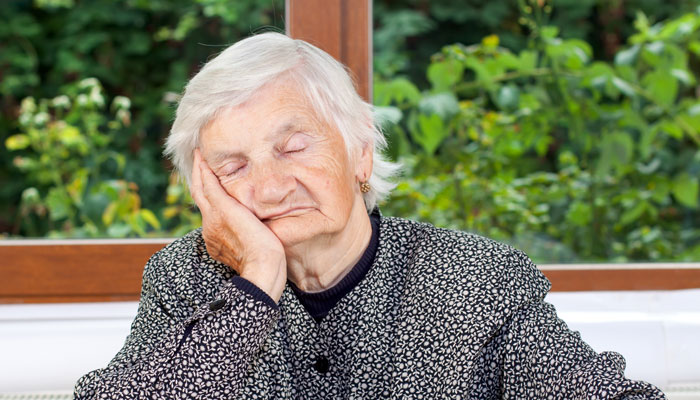
February is Heart Month. If your loved one needs frequent naps and gets out of breath easily, he or she may need a daily life energy budget. (This is especially true for people with heart failure.)

If the person you care for has a low vision diagnosis, three types of modifications to the home can make life easier: Lighting, glare control, and the use of color contrast. Fortunately, these strategies are relatively inexpensive.

Frustrated in your search for a paid caregiver? You are not alone. There is an extreme shortage of helpers right now. Even before COVID, the demand for aides was greater than the supply. The “Great Resignation” hit the caring professions hard. Caregivers close to retirement left early. And many younger workers decided to opt for safer, less demanding jobs. In some states, as many as 38% of direct-care workers chose other occupations last year.

Caring for a parent long distance brings its own challenges. With planning, organization, and frequent communication—plus a little help from technology—you can provide effective support.

Catching things early is big with Medicare. Every year, all Medicare enrollees are eligible for a free “Wellness Visit” with their primary care doctor. This is NOT an annual physical, so don’t use that term when making the appointment. Beyond basic vitals—height, weight, blood pressure, and pulse—there is no physical examination. If a physical exam is done, your loved one may have to foot the bill.
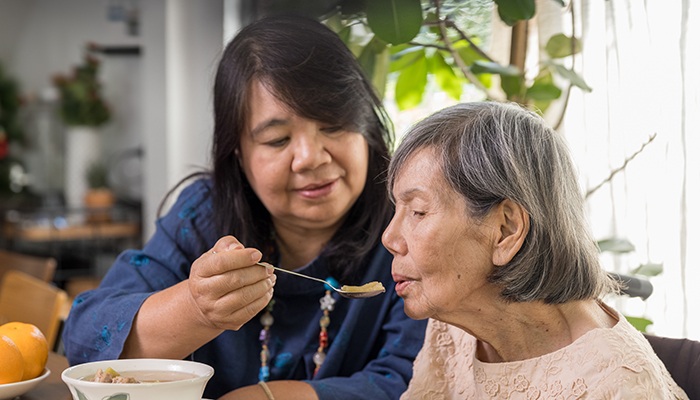
Being primary can be quite a job. In many cases it involves driving to the doctor and managing medications, handling finances, providing for daily needs, coordinating care services, and keeping the elder’s spirits up. If you are that person, don’t try to do it alone—even if it seems like that’s the only choice.
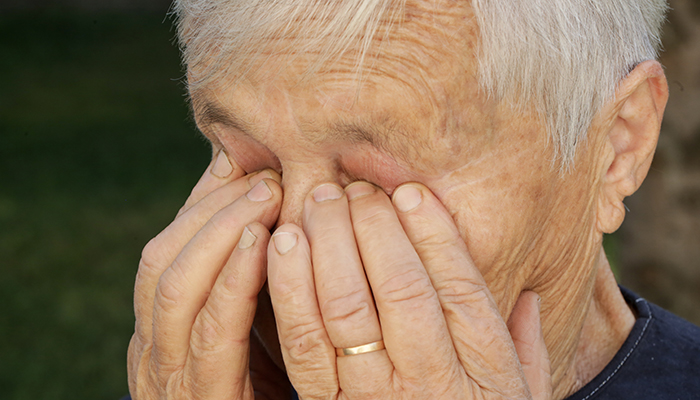
Our eyes show us the world. If something goes wrong with them, it can affect our total well-being. Dry eye syndrome makes eyes feel gritty, burning, itchy, and sensitive—discomforts that are hard to ignore! It typically manifests with age and affects as many as 30% of older adults.
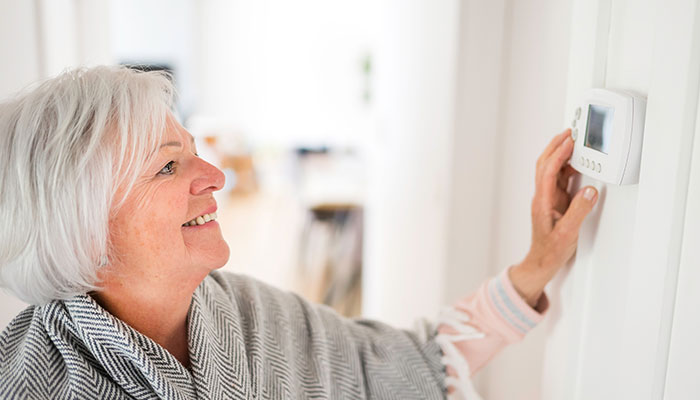
The dangers of cold weather are obvious outdoors. But there are dangers indoors, too, most often because the house thermostat is set too low. People can die from being too cold. Older adults are especially at risk.

Take any roomful of people and likely two-thirds of them have relatives who aren’t talking to each other. Families are messy. Hurts abound. Some people wait until a serious diagnosis to reconcile. They often regret the years of separation they can never retrieve. Others try forgiveness earlier in the process. There’s no right or wrong.

The grandparent–grandchild relationship can be precious, like no other. But even young children notice if Grandma or Grandpa isn’t acting the way they used to, or the same way others do. And they will have questions.

If you expect older visitors this season, check your home for hazards. Older adults often have impaired balance and vision. This makes them prone to falling, especially in new surroundings. And fragile skin and bones can mean double trouble if someone does take a spill.
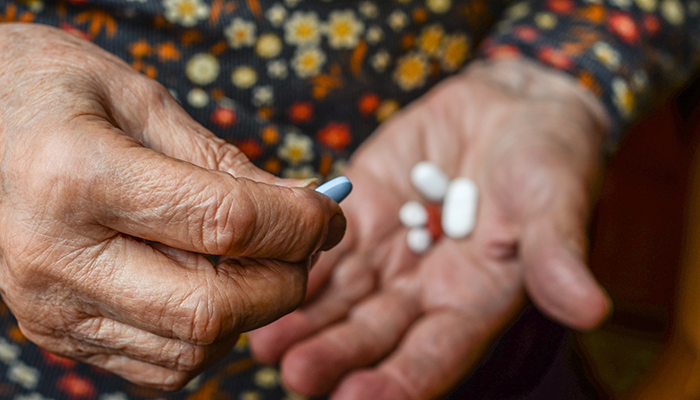
Taking the right medicines at the right time is extremely important to health management. But 75%–96% of older adults admit that they frequently make mistakes with their medication. Is your loved one among them?
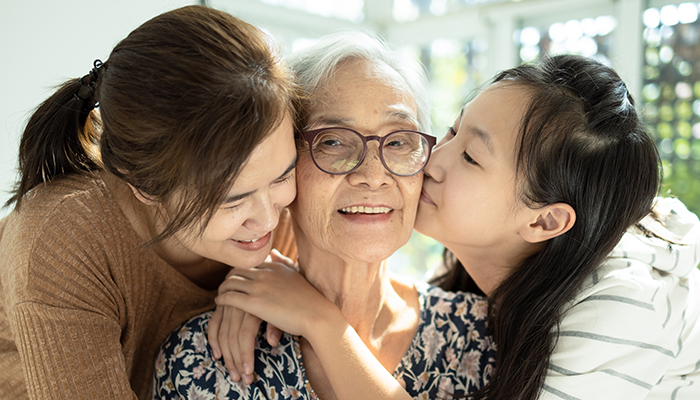
Deciding what holiday gifts to give a person with memory loss can be challenging. From seasonal activities to digital picture frames or fuzzy robo-pets, we’ve got suggestions!
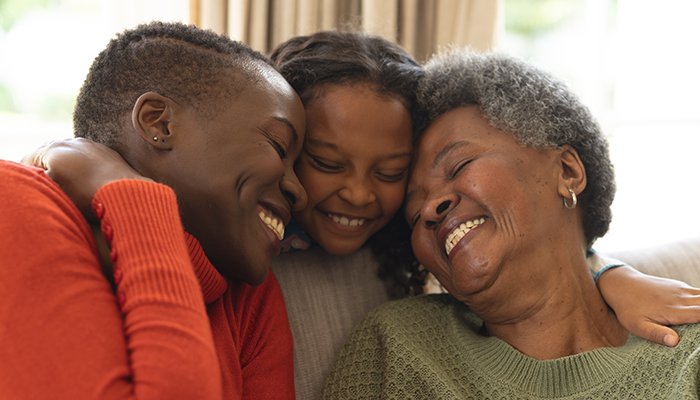
November is National Family Caregivers Month. We want to express our gratitude to you, who are part of the 40 million people (one in six Americans) who care for an older adult friend or relative. So many family caregivers feel invisible, we thought we’d give you some perspective on the scope of family caregiving across the country.

Are frequent visits to the ER a significant part of the past six to twelve months? Does your loved one seem more fatigued? Less interested in eating? Perhaps a bit withdrawn? These symptoms may be hallmarks of a serious illness your relative will overcome. But it’s also possible that these signal that your family member no longer has the reserves to beat their condition.

If the person you care for is a veteran and is seriously ill, they may qualify for a VA program designed to control symptoms that cause pain, discomfort, or mental or emotional distress. Called “palliative care,” this program is available even if the problems are as a result of treatments, not just the medical condition itself.

Do you ever wish you could wave a magic wand for more joy? Patience? Optimism? Motivation? Maybe less irritability and stress? It’s actually accessible now, no wizardry required. Just a shift in attention. Welcome to “anticipation.”

The most common form of dementia is Alzheimer’s disease. However, there are many other conditions that also bring on memory problems. It is important to accurately identify the cause, even if there’s no cure, because this will shape the best strategy for addressing difficult symptoms.

It’s unpleasant to imagine that your loved one might become the victim of crime, but it’s worth considering. There are valuable preventive steps to take. Unless your relative lives in a high-crime neighborhood, their greatest risk is a property crime in or around their home.

If your loved one is discharged from the hospital to a skilled nursing facility (SNF), their care will be in the hands of a team of specialists. It’s a good idea to understand the players’ roles so you know whom to call upon for what.
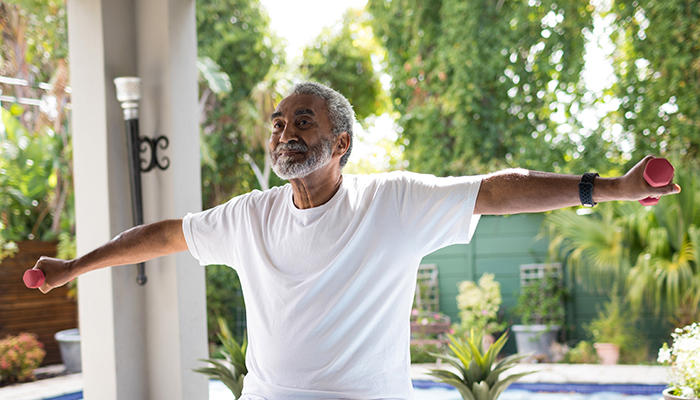
Depression is common in older adults. It’s long been known that brisk exercise can help reduce depression. But it turns out that exercise doesn’t have to be vigorous to make a difference. Even mild exercise can be effective.
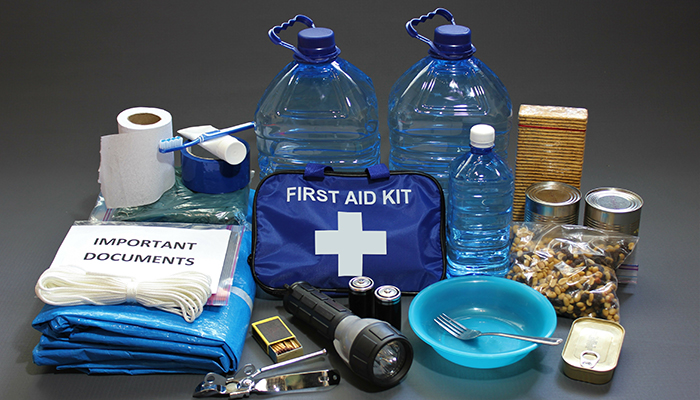
No one likes to dwell on the possibility of disaster. But we all need to prepare for one, just in case. Help your relatives gear up for safety. Whether you live across town or across the nation, the action items are the same.

If your loved one has balance problems, the culprit may be in the medicine. Many common medicines have side effects that can impair balance and lead to a fall. Over 40% of persons age 65 and older take five medications or more. This increases the chance that at least one of the drugs has side effects of dizziness, blurry vision, drowsiness, or muscle weakness.

Has your parent remarried? If so, you may be sharing the caregiving with a person you don’t know very well. Biological families often encounter tensions when it comes to eldercare. Add a stepparent and the challenges can grow exponentially.
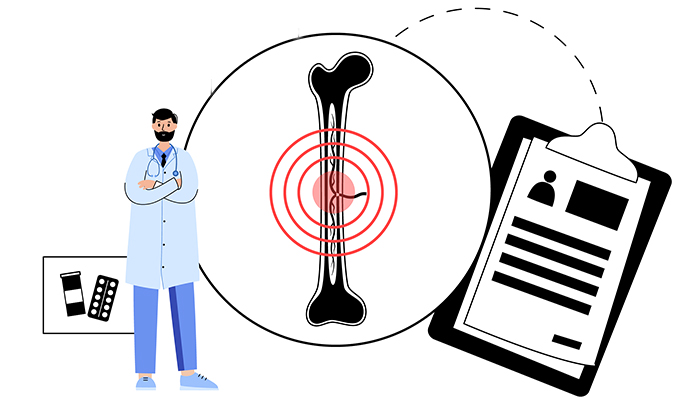
Medicare pays for many screening exams, and even counseling sessions, to help nip common illnesses in the bud. Screening tests are designed to identify problems before symptoms emerge. They are usually for people who are considered to be “at risk” for getting a specific disease. Here are some of the most common noncancer preventive services that Medicare covers. Ask the doctor if your loved one should be tested.

Good communication requires both speaking and listening. Oddly enough, if you make a specific effort to listen, it can open doors. Once “heard,” the other person may be more willing to hear your point of view. Deep listening is more difficult than it sounds. It’s not passive. It requires concentration. It also takes humility and empathy.
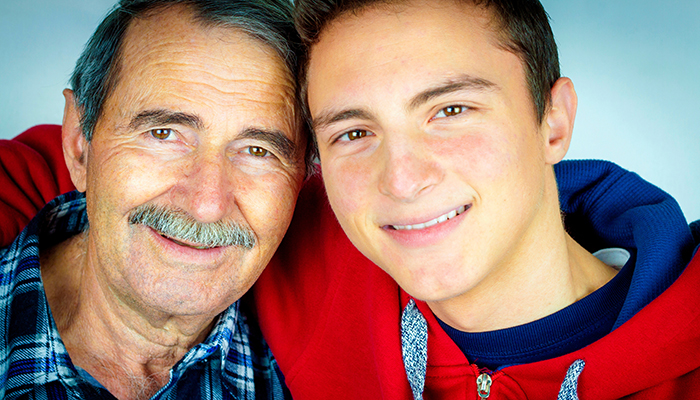
For a teen, a relative’s dementia can turn a close relationship into one that’s now awkward, confusing, and embarrassing. And creates feelings of guilt.

After you have scoured the Internet to help your relative find a potential new doctor—someone on their plan and with no obvious red flags—it’s time to get more specific. The doctor’s website may provide some descriptive information, but most likely, you’ll want a conversation.

For most family caregivers, frustration and guilt are common, as is anxiety and resentment. These feelings are normal and reasonable under the circumstances. It’s not realistic to eliminate negative emotions. Caring for an ailing family member IS emotionally taxing, especially in the case of memory loss. But sometimes the negativity can feed on itself.

Even pre-COVID, many 90-year-olds adamantly refused to go to a senior center, saying they didn’t want to be around “all those old people.” (!) Does this sound like your loved one? Admittedly, the senior centers of the past tended to focus on bingo and crafts. These activities are of limited interest to the newest generation of older adults. Happily, senior centers have been updating. Bingo and crafts are still there. But the upswing in technology use during COVID catapulted many centers into the 21st century

With summer’s warm weather, be on the lookout for dehydration in your loved one. The signs include confusion, fatigue, weakness, and sleepiness. Some people become dizzy and their balance is thrown off. Dry mouth, headaches, and muscle cramps are other symptoms of dehydration.
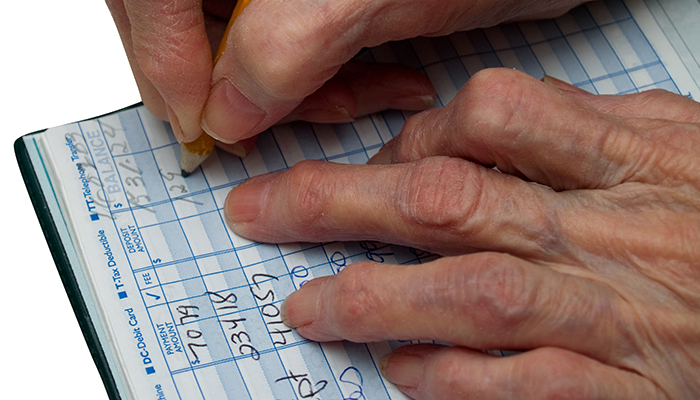
If the person you care for has dementia—memory or thinking problems from a condition such as Alzheimer’s, a stroke, or Parkinson’s—unpaid bills or a messy checkbook may have been your first sign that something was amiss. Certainly, in the later stages of dementia, your loved one won’t be able to manage their finances. But what about the in-between?

Elderly parents are living longer. Children are often dependent for more years than expected. Add to this the ongoing responsibilities to spouse/partner and jobs, and there is little wiggle room for the millions of family caregivers who find themselves squeezed in the middle as the “Sandwich Generation.”

Elderly parents are living longer. Children are often dependent for more years than expected. Add to this the ongoing responsibilities to spouse/partner and jobs, and there is little wiggle room for the millions of family caregivers who find themselves squeezed in the middle as the “Sandwich Generation.”
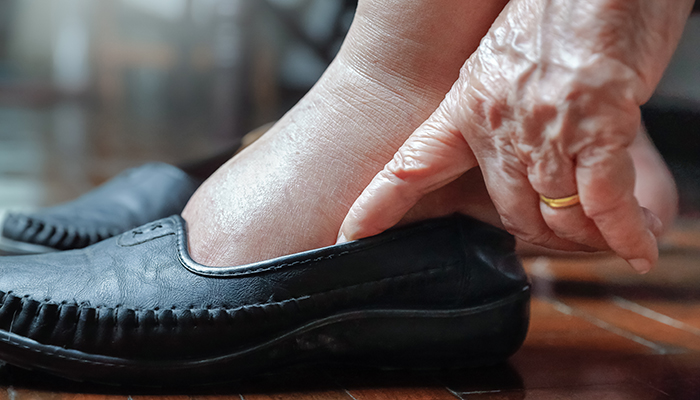
Many older adults experience swollen legs and feet. For some, it’s because of sitting a lot and leading a sedentary lifestyle. For others, it’s the water retention side effect of a medication. And for others, the swelling—called “edema”—is a symptom of a chronic or even serious illness such as heart failure or liver or kidney disease.

Many older adults experience swollen legs and feet. For some, it’s because of sitting a lot and leading a sedentary lifestyle. For others, it’s the water retention side effect of a medication. And for others, the swelling—called “edema”—is a symptom of a chronic or even serious illness such as heart failure or liver or kidney disease.
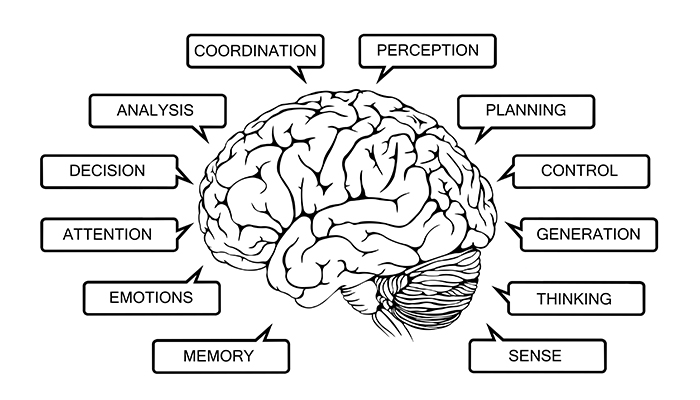
The brain is another organ to keep fit, and regular workouts are a good thing! Our brains enable many types of thinking: Problem solving, planning, attention, and memory. They manage our emotions and help us understand the emotions of others. Our brains also control movement (balance, speed, and coordination). And it’s where we process our spatial awareness—used for packing a suitcase or reading a map.

The brain is another organ to keep fit, and regular workouts are a good thing! Our brains enable many types of thinking: Problem solving, planning, attention, and memory. They manage our emotions and help us understand the emotions of others. Our brains also control movement (balance, speed, and coordination). And it’s where we process our spatial awareness—used for packing a suitcase or reading a map.

Much of the strain of caring for a loved one lies in the loss of a predictable routine, a sense of “normalcy.” Understanding the course of your loved one’s condition—the rhythm of how it unfolds—can empower you to respond more flexibly to its challenges.

Much of the strain of caring for a loved one lies in the loss of a predictable routine, a sense of “normalcy.” Understanding the course of your loved one’s condition—the rhythm of how it unfolds—can empower you to respond more flexibly to its challenges.

Your loved one may be watching for phishing scams on email, but now there are scams carried out by short message service (aka, texting). “Smishing” scams rose 58% in 2021. Nationwide they cost victims over $10 billion. Seniors are a prime target, as three out of five now own smartphones. While convenient, smartphones present new opportunities for getting scammed. Time to alert your relative to smishing.

Your loved one may be watching for phishing scams on email, but now there are scams carried out by short message service (aka, texting). “Smishing” scams rose 58% in 2021. Nationwide they cost victims over $10 billion. Seniors are a prime target, as three out of five now own smartphones. While convenient, smartphones present new opportunities for getting scammed. Time to alert your relative to smishing.
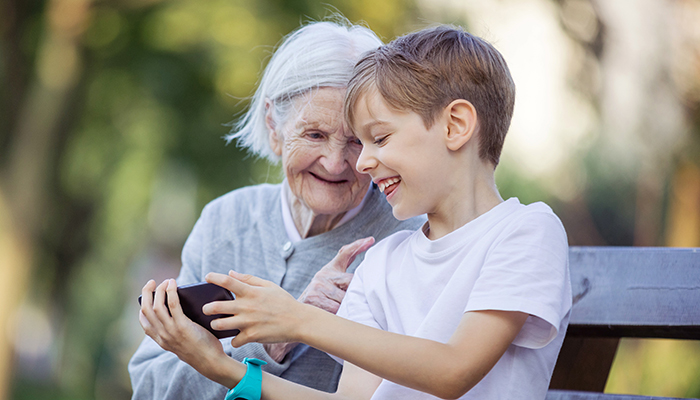
Children generally like to feel included. But they may not know how to relate to an ill family member with limited abilities. Here are some ideas for home-based activities with elementary-age children.

Children generally like to feel included. But they may not know how to relate to an ill family member with limited abilities. Here are some ideas for home-based activities with elementary-age children.
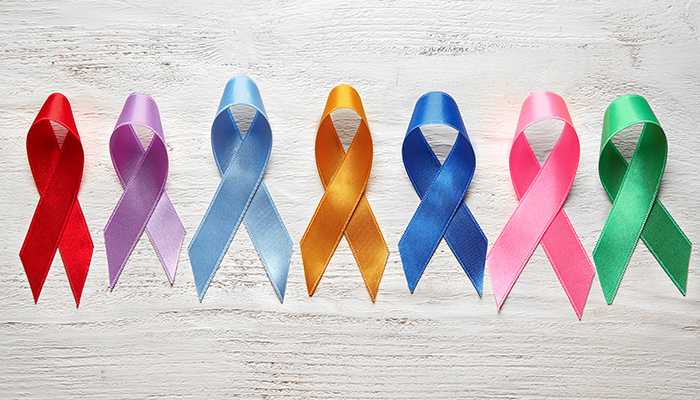
Has your loved one been diagnosed with cancer? The vast majority (67%) of people with cancer live for another five years or more. A cancer is considered “stable” or “controlled” when tumors shrink or at least temporarily stop growing. This is not the same as being cured—no tumors—but it does make cancer more of a manageable chronic disease, like diabetes or asthma.

Has your loved one been diagnosed with cancer? The vast majority (67%) of people with cancer live for another five years or more. A cancer is considered “stable” or “controlled” when tumors shrink or at least temporarily stop growing. This is not the same as being cured—no tumors—but it does make cancer more of a manageable chronic disease, like diabetes or asthma.

Do you ever look at friends and find yourself mad or upset because they have free time? They don’t have a relative that needs help? You might even wish they had it harder, had some real challenge in their life. And then you feel guilty. If this sounds familiar, you are not alone. Envy is a natural human emotion.

Do you ever look at friends and find yourself mad or upset because they have free time? They don’t have a relative that needs help? You might even wish they had it harder, had some real challenge in their life. And then you feel guilty. If this sounds familiar, you are not alone. Envy is a natural human emotion.

A primary care provider (PCP) is charged with monitoring and treating a person’s whole body. Specialists abound and indeed are important. But we are more than the sum of our organs. Your relative’s PCP helps ensure that specialists are not doing things that counteract each other. If you are looking for a new PCP, there are several types of providers to consider.

A primary care provider (PCP) is charged with monitoring and treating a person’s whole body. Specialists abound and indeed are important. But we are more than the sum of our organs. Your relative’s PCP helps ensure that specialists are not doing things that counteract each other. If you are looking for a new PCP, there are several types of providers to consider.

Is low vision making it harder for your loved one to cook? If food preparation has been one of their pleasures, they are probably grieving not only the change in their eyesight, but also the loss of creating and serving delicious meals. Even if cooking has not been a passion, the ability to safely prepare food for oneself is critical for maintaining independence and self-esteem. Fortunately, there are ways to empower your relative with simple strategies and inexpensive tools. Here are some techniques that augment and use all the senses. They also protect safety.

We’re breathing all the time. But when it comes to stress relief, not all breathing is equal. Our bodies are built to handle periodic crises. When we sense danger, our bodies release “stress hormones” that enable us to respond powerfully and fast. When the crisis is over, those hormones are no longer released. The body returns to relaxed, “normal” mode. But chronic stress is damaging. When we’re stressed every day, the “fight-or-flight” hormones keep running. Not a lot, but enough to upset the body’s balance and undermine physical health and mood. The body is distracted from its routine tasks of repair and maintenance. This can result in significant consequences.

If the person you care for has dementia, you may have noticed their withdrawal from conversations, movies, even from reading books or the newspaper. Anything with an involved plot line is now too difficult for them to follow. Poetry, on the other hand, involves rhythm and images, which can stimulate memories of experiences, emotions, smells, tastes, and other sensations. All quite accessible by persons with dementia. Plus, many older adults went to school when poetry was an active part of the curriculum. Exploring fun poetry together may tap into positive memories from the past.

Those who donate organs, eyes, or tissue leave a tremendous legacy, often the gift of life itself: Allowing someone a steady heartbeat. Or the vision to see a grandchild. Or healthy skin to cover a burn or cancer site. National Healthcare Decisions Day (April 16) is when everyone is encouraged to create or update their advance directive. These end-of-life documents include a section for letting family members and healthcare providers know whether you choose to be an organ donor.

Those who donate organs, eyes, or tissue leave a tremendous legacy, often the gift of life itself: Allowing someone a steady heartbeat. Or the vision to see a grandchild. Or healthy skin to cover a burn or cancer site. National Healthcare Decisions Day (April 16) is when everyone is encouraged to create or update their advance directive. These end-of-life documents include a section for letting family members and healthcare providers know whether you choose to be an organ donor.

Combining households has many benefits: Less hassle running back and forth between two residences, less worry about Dad eating well and remembering his meds, more family social time for him, cost savings on rent and utilities, etc. But if things do not work out, disentangling could cause hurt feelings and damage your relationship. Consider these questions before you move in together.

Money matters are often intensely private. And no one wants to infringe on a family member’s independence. Yet it is through (sometimes expensive) financial mishaps that you may learn of changes in your parent’s memory and thinking. Signs of a problem Diseases that affect memory also tend to impair arithmetic skills and reasoning. That’s why…

Dog training organizations are looking toward a new challenge: Training highly skilled “dementia dogs.” These dogs are individually trained to meet the needs of persons with memory loss problems. They provide safety and companionship. They also relieve the anxiety of family caregivers. To support a person with dementia, dogs are trained to help with memory…
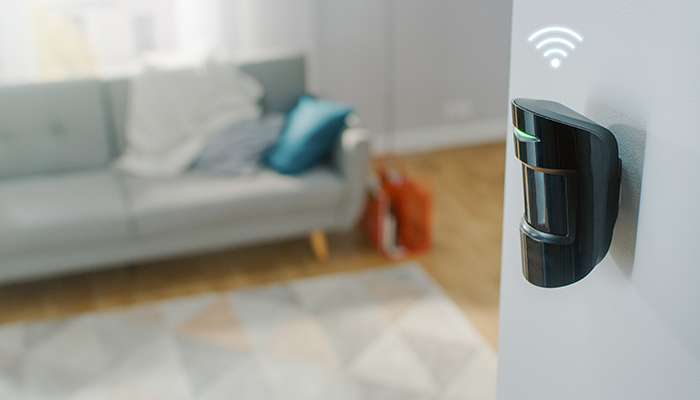
From sensors and cameras to remote alarm systems, today’s marketplace offers a plethora of technology to help older adults safely age in place. Those devices with monitoring features are particularly useful if your loved one lives on their own, whether near to you or far away. Indeed, many apps and devices can help you stay…

It’s common for those newly diagnosed with a vision-loss condition to feel anxious and depressed. Understandably so! They worry about losing their independence. Also, that they will need help with many activities of life. This in turn suggests a loss of privacy. Many newly diagnosed persons report a sudden lack of confidence and feelings of…

With National Healthcare Decisions Day coming up on April 16, it’s good to review who your loved one has chosen as their healthcare power of attorney (sometimes called a “proxy” or “agent”). This is who will make decisions for them when they are no longer able to do so themselves. Often this occurs in end-of-life…

Did you know that nearly half of adults taking prescription medications for a chronic condition make errors in taking their meds? The most common problem areas: Memory. Forgetting to take a medication Organization. Failing to order a refill in time and running out Convenience. Being away from home and missing dose(s) Side effects. Experiencing unpleasant reactions…

Before your loved one pays a medical bill, wait for the insurance’s Explanation of Benefits (from Medicare, this is called a “Medicare Summary Notice”). This document indicates what services were billed by which providers for what days. It is an important summary to help you catch errors, duplicates or, sadly, even identity theft or fraud….

When we think of “resources,” as family caregivers we might think of money. Or time. But there is another resource we’re using every day that is often overlooked: Emotional energy. Our emotions and mood contribute mightily to our ability to deal with challenges. When circumstances are difficult, it’s hard to generate enthusiasm or initiate projects….

If the person you care for has chronic or advanced kidney disease, dialysis will come up as a treatment option. This procedure mimics the cleansing function of the kidneys. It mechanically “rinses” the blood to take out toxins. Dialysis is not a cure for kidney disease. But it does buy some time. People often live…

Don’t confuse a lack of symptoms with a lack of risk. A person with high blood pressure usually feels “just fine.” And that makes it easy to also feel unconcerned. Your loved one may not be motivated to treat high blood pressure. Or may want to stop taking medications because they don’t notice any difference….
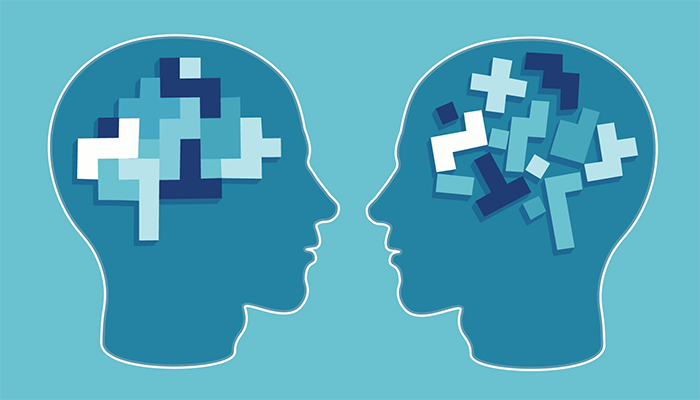
Nearly every type of dementia compromises the ability to process language. It’s harder for the affected person to grasp words, to comprehend their meaning, and to track what’s being said. Communication with your family member may seem a frustrating struggle. Still, aim for interactions that maintain a positive relationship. Your emotional tone is key: Pay…

Age-related macular degeneration (AMD) is a very common condition affecting the retina of the eye. It causes blurry vision and dark spots in the center of the visual field. This makes it challenging to read, drive, and recognize faces. Although AMD typically gets worse over time, it does not lead to total blindness. It is,…
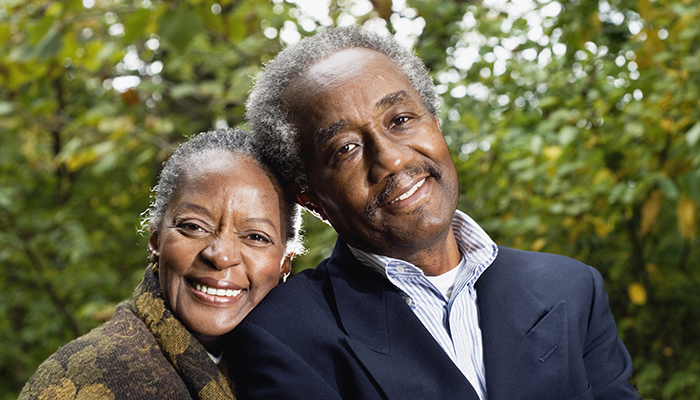
Are you supporting a relative who is also a caregiving spouse? Many long-lived couples see it as both a duty and a privilege to walk that last mile with their partner, fulfilling vows of “for better or for worse.” That does not mean the journey is easy. Caregiving partners often experience physical challenges as they…

Only 24% of people with high blood pressure have it under control. The remaining 76% are at very high risk for death or disability through heart attack, heart failure, or stroke. In fact, in 2018 high blood pressure was listed as a primary or contributing factor in nearly a half million deaths. With COVID-19, high…

There is no doubt that seniors are suffering emotionally, and physically, from the social isolation of the pandemic. Those with dementia have been especially hard hit. Even elders who live on their own with no memory problems are struggling with loneliness, depression, and anxiety. How is your loved one doing emotionally? Want to introduce a…

Glaucoma is a leading cause of blindness among older adults. It causes pressure in the eyeball to build up to a point that the optic nerve is damaged. There is no cure or repair. That’s a grim reality if your loved one has been diagnosed with this disease. Fortunately, glaucoma’s progression can be slowed and…

It’s not uncommon for a holiday visit to reveal that things with mom or dad are newly amiss, particularly in the area of personal grooming. Maybe mom has always been fastidious about her appearance, and now she’s disheveled. Or dad didn’t change clothes the entire time you were there, and maybe even had a strong…

It’s a fact that scam artists prey on older adults. Scammers steal identifying information and use it to obtain cash, make purchases, or open new credit card accounts. If your relative’s identity has been stolen, take action quickly. But be methodical! Keep track of every report you make. Log every call. Send any documents by…

Caring for a loved one with moderate-to-advanced dementia often leads to bewilderment. And sadness. Perhaps your relative seems withdrawn. Or is fidgety, pacing, or wandering. They may seem to recede each day. How can you connect with them now? How can you keep them engaged? Experts in dementia care are culling tips from pioneering educator…

Don’t you just somehow feel better when you laugh? It turns out, that’s not just fantasy. Laughter has physical benefits at the cellular level. Research consistently demonstrates that a good belly laugh engages many different systems in the body. And laughter delivers emotional health benefits as well. Studies show that laughter supports the heart. If…
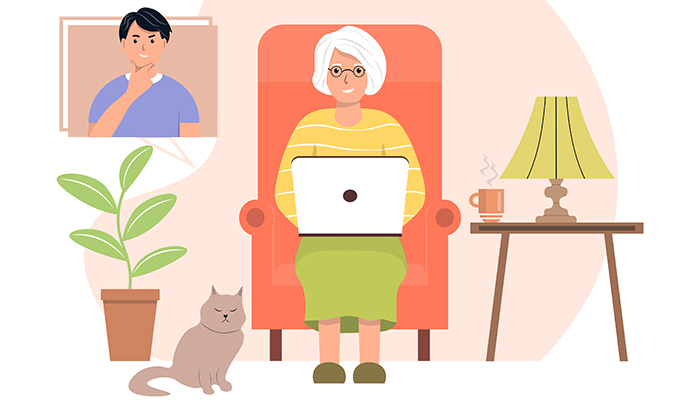
The desire to leave a legacy calls strongly to many older adults. Perhaps this is of interest to an elder in your family. A legacy does not have to be financial in nature. One way to leave a legacy is to record a personal story and bequeath its insight to future generations. StoryCorps, a project…

Should your loved one go ahead with cataract surgery? What about a hip replacement? Dental work? A cardiac stress test? In light of COVID, other health issues seem to pale. But putting off treatment or tests can result in tough consequences down the line. How do you know which procedures are worth the risk? Consider…
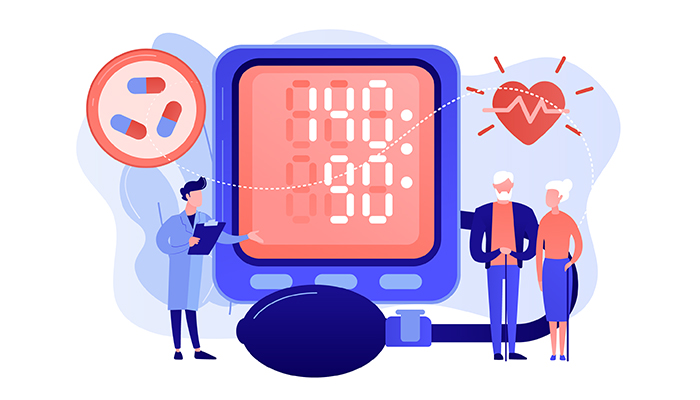
High blood pressure is sometimes called “the silent killer.” This is because it is dangerous but has few outward symptoms. As the heart pumps, it pushes blood through the blood vessels, creating pressure on the artery walls. High blood pressure means that your heart is having to work extra hard to get the basics of…

People with Alzheimer’s or other memory loss conditions often have trouble expressing themselves, sometimes right from the start of the disease. This can easily lead to confusion and frustration for both of you. Your willingness to exercise patience is key to successful communication: Patience and calm, over and over and over again. This is hard!…

Many older adults are embracing technology to stay connected with family and friends during the pandemic. Although some popular technologies—Zoom, FaceTime, and Skype—are relatively simple, they still require a computer, tablet, or smartphone. Plus some tech savvy. Your loved one may be challenged to learn new skills because of memory issues. Or perhaps arthritis or…
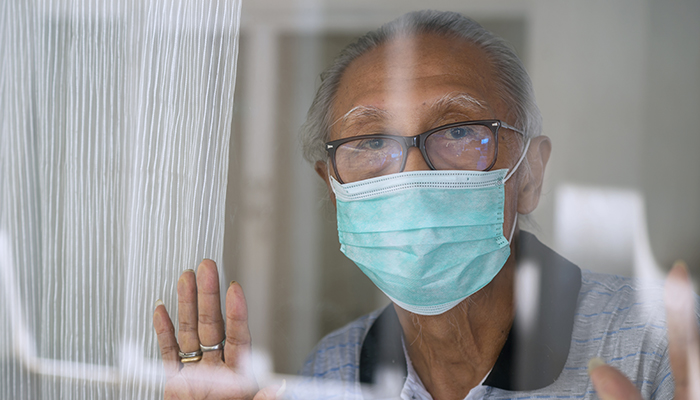
In the context of COVID, many families are wondering if an older relative would be better off moving out of their assisted living, memory care, or skilled nursing facility. It’s not an easy question to answer. The advantages of facility living. Facilities have staff on site 24/7 to assist with residents’ needs. They can provide…

Close to 2 million American soldiers fought in the Korean War from 1950 to 1953. More than half of those who served in what is often called the “Forgotten War” are still alive. Most of these soldiers were born during the 1920s and 1930s. They are now in their 80s and 90s, with some cresting…

Caring for a family member often involves collaborating with other relatives. Sometimes you will agree. Sometimes you won’t. Debating every item may not be the best use of family time. In some situations, the wisest course is to be quiet and let others do it their way. That said, there are times when you should…

Increasingly, research shows that older adults can benefit in myriad ways from the companionship of an animal. Physical health benefits Pets seem to help us stay calm in the midst of stress: Reduced blood pressure and heart rate. Some research shows improvement even when the “pet” is fish swimming in an aquarium! Strengthened immune system….
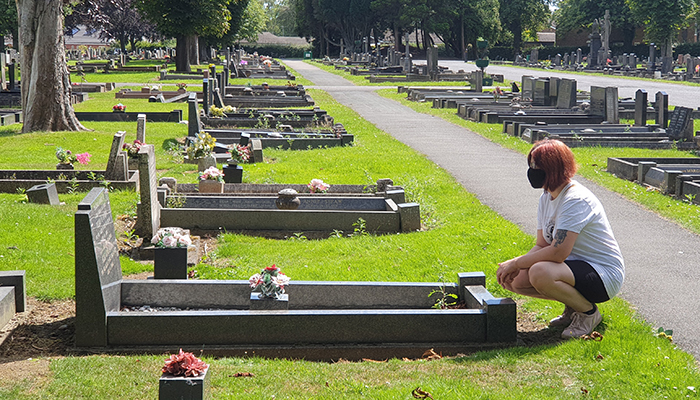
Between travel concerns and restrictions on group gatherings, holding a traditional funeral can be challenging. Many families are turning to “virtual funerals” using video conferencing programs, such as Zoom. About 20% of funeral homes offer virtual services. And there are online companies that specialize in funerals. They assist with everything from sending out invitations and…
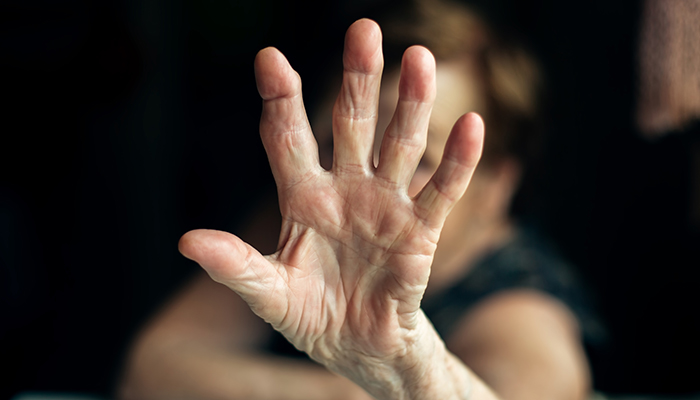
Arthritis is a difficult condition to understand as an onlooker. The pain is invisible and unpredictable. Some days are good. Other days are not. Arthritis challenges the affected person’s ability to accomplish the basics—simple tasks, such as opening jars or walking up stairs. Such disability can generate feelings of frustration and low self-worth. The chronic…

Life with a serious illness is not all dreary and glum. The condition and its symptoms can certainly take over. But daily life continues. And patients are more than their disease. Like everyone, they need to eat, walk, talk with friends and family, and enjoy pleasant activities. Palliative care is an extra layer of support. Its…

Many people confuse mindfulness with meditation and Eastern religions. Mindfulness is a skill gained by training your mind to observe life situations in a less emotionally charged way. It is a mental skill that gives you a less-cluttered perspective. It lowers daily stress and is particularly helpful when making important decisions under duress. Mindfulness is…
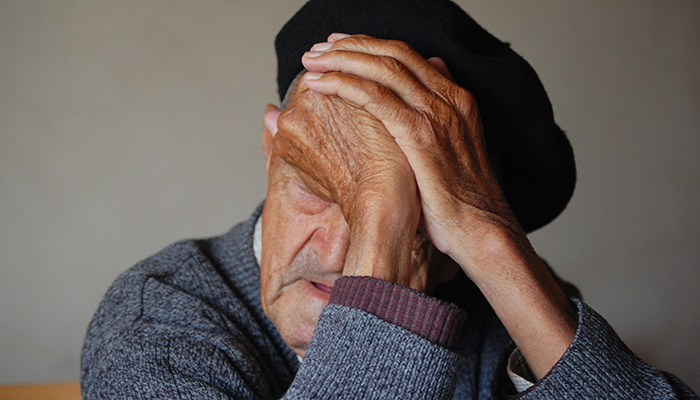
Dementia itself does not cause physical pain. But people with dementia still encounter pain, just like anyone else: headaches, arthritis, tummy aches. They just can’t describe it. They might even deny having pain when you ask because they don’t understand the question. Learn the nonverbal signs of pain so your loved one doesn’t suffer. (Your…

Ever wondered why older men seem to need to urinate frequently? An enlarged prostate gland is likely to blame. The condition, benign prostatic hyperplasia, or BPH, is so common that it affects 90% of men by age 80. The prostate gland is roughly donut shaped and is located below the bladder. The urethra, the “tube”…

Time with a doctor is precious—and that creates pressure to make the most of each visit. Whether your loved one’s next appointment is in person or through telehealth, a little preplanning will go a long way to making it a productive session. Here are some helpful tips: Identify the goal. Are you seeking a diagnosis…

Many of us hold unconscious covenants with our kin. Among the most poignant, perhaps, is a commitment to “be there” when death is near. As adults, we may feel an obligation, and an honor, to be with our parents as they leave, just as they helped us enter. With our spouses, the ultimate commitment—’til death…

Millennials and Gen Xers are using strategies that might benefit family caregivers of all ages. Nearly half (47%) of adults in their 40s and 50s now find themselves “in the sandwich.” They serve as primary support people for an aging parent. Plus, they have children who are still at home or at least financially dependent….

“When are we going out?” A reasonable question under normal circumstances. But if the person you care for has dementia, you may get this question multiple times in an hour. Aargh! Indeed, repetitive questions are one of the top irritants mentioned by family caregivers whose loved one has dementia. The repetitive questioning isn’t done intentionally,…
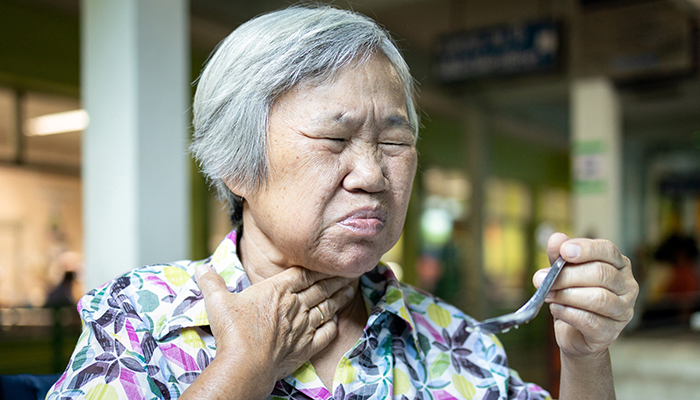
Swallowing involves the coordination of many muscles in the mouth and throat. The action pushes chewed food down toward the stomach. At the same time, the throat needs to close off the windpipe to the lungs. Between 15% and 20% of older adults have trouble swallowing. Choking while eating or drinking is the fourth-leading cause…

Caring for an ill family member often requires taking on the role of “decision maker.” Sometimes it’s multiple mundane decisions (Should you ask your sister to do the shopping? Is this a good day to shower Mom? Now or after lunch?). And sometimes it’s several important health decisions, all in a short period of time….

If you are concerned about a loved one’s osteoporosis—brittle bones—it’s a good idea to bring this up with the doctor. He or she will likely discuss various medicines that can help. In addition, changes in daily life outlined below can go a long way to making stronger bones. Consider: Diet: There are two key nutrients….
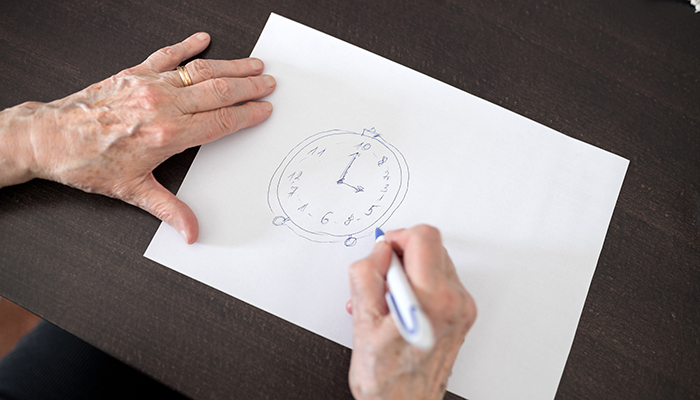
When symptoms of memory loss or confused thinking arise, it’s natural to wonder: Is it Alzheimer’s? There is no specific test for Alzheimer’s disease. To achieve a diagnosis, doctors typically order a variety of tests. Most of the tests are to rule out the many, many conditions besides Alzheimer’s that can cause similar symptoms. Some…

Staying connected is extremely important. Isolation and loneliness are not just sad situations. They have been shown to increase the likelihood of dementia, depression, and heart disease in older adults. Even early death. As a family caregiver, you may be struggling to find ways to have meaningful interactions. Especially if the person you care for…

Children are like sponges. They soak up whatever is around them. If Grandpa is sick, or Grandma has dementia, they’ll pick up on your emotional responses. If no one has explained the situation, they’ll make up their own ideas about what’s going on. As a result, they may feel unnecessarily scared and alone. Instead of…

Many older adults complain of having to get up several times in the night to pee. Some of this is a normal part of aging. Our bladder capacity gets smaller, so we need to void more often. But frequent trips to the toilet can have a serious impact on sleep. Nocturia—the medical name for getting…

Our fight-flight-or-freeze reactions are deeply embedded in our body and brain. In intense situations, they take over. As a family caregiver, it’s easy to feel overwhelmed by the many decisions that must be made. And the responsibility. This is especially true in times of great stress and uncertainty. We become emotionally flooded and enter a…

Scammers thrive in crises. The Federal Trade Commission is reporting a surge in fraud complaints. Bad actors are leveraging fear and shortages to bilk consumers out of millions and to harvest information for identity fraud. Help your loved one avoid scammers by following these tips. Research requests for donations. Verify the nonprofit on Guidestar.org, the…

If you were asked to name the stresses in your life, you might think first about all the tasks and responsibilities you are juggling. Or challenging relationships. Or financial difficulties. Less obvious are the stressors in your environment that can tax your nervous system behind the scenes. “Junk stimulation,” like junk mail, simply overwhelms the…

Family caregivers are often thrust into the role of making decisions for a loved one. Some decisions are relatively small: Purchase a walker with wheels or one without? Others are large and may have life-changing ramifications. Approve that surgery? Initiate a move to assisted living or set up care at home? Rarely is there a…

“Kale smoothie, anyone?” Maybe not…. Good nutrition has always been a mainstay of good health. Indeed, there is growing awareness of the power of food to support healing for a wide variety of conditions. What is less well known is the fact that even very healthy foods can cause health problems when combined with specific…

Does the person you care for seem to have shrunk a bit? Pants are too long? Can’t reach items on their regular shelf? You can see the top of their head? it could be that their bones have become more porous with age. This is called “osteoporosis.” With osteoporosis, bones are less dense and easily…

Many families caring for a seriously ill loved one struggle alone unnecessarily. They miss out on vital support services because they don’t understand what hospice can provide. Home visits by a nurse to manage pain and other difficult symptoms. Home visits by a nursing assistant to bathe your loved one and shampoo hair. Free prescriptions…

Stress has gained a dirty name during the past decades. It’s something we talk about needing to getting rid of, as if it were wholly bad. While chronic stress can be damaging to our health, recent research demonstrates that stress isn’t always a threat to our well-being. In fact, the very things that bring greatest…

If your older loved one snores loudly, he or she likely has sleep apnea: A collapsing of the airways while sleeping that results in mini-suffocations 5–30 times an hour. And, left untreated, this serious condition is a strong contributor to heart-related deaths, type 2 diabetes, dementia, depression, and car accidents. It’s also a huge problem…

“I don’t like that bear on my bed!” A visual hallucination such as this can occur in the later stages of dementia or near the end of life. Some people also have auditory hallucinations—hearing things that others don’t—or feel things that aren’t there, such as string in their mouth or ants on their arm. These…

If your loved one and family have had the conversation about end-of-life wishes, kudos to you! In addition to writing down those wishes in an advance directive, your relative should also share them with his or her health care team. Even if your family member is in perfect health now, that could change at a…

We all quarrel with reality from time to time and wish things were different than they are. Especially now, when life seems unfair. All flights have been cancelled due to the coronavirus and you won’t be able to be with your Dad on his 80th birthday…. Your mom is in an assisted living facility that…

If your relative is taking brand-name prescription drugs, a switch to generic could provide significant savings. Why are brand-name drugs so expensive? It takes a lot of money and time to develop a new drug. In particular, it must be tested to show it works and is safe for humans. Patent laws give an innovator…

This is a time of great uncertainty. It’s natural to feel a wide range of emotions, including fear, anxiety, confusion, or loneliness. It is also a time to take extra care to address your feelings and keep them from paralyzing or overwhelming you. Get the facts. Our emotional responses come from the part of our…

If your loved one snores, this may be a sign of “sleep apnea.” All snoring jokes aside, sleep apnea is a serious condition that deprives the brain of oxygen. A person with sleep apnea goes without oxygen for at least 10 seconds, five to 30 (or more) times an hour. It happens because the soft…

What we know so far is that COVID-19 is spread much like the regular flu—through coughs and sneezes that put droplets in the air and on surfaces. It may be 2–14 days after exposure before a person has symptoms. That means people can spread the virus without knowing it. And many have symptoms that seem…

Is dementia making oral care difficult? Unfortunately, this isn’t a task to let go. Poor mouth care leads to cavities and gum disease, and then to toothaches, sore gums, and a disinterest in food. It can also contribute to a deadly infection, “aspiration pneumonia.” Even if the person you care for is no longer eating,…

As a society, we value independence. The self-sufficient super-achiever. When it comes to family caregiving, however, this mind-set can backfire, resulting in stress and burnout for you, not to mention greater risk for your relative. (Imagine if something happened to you and no one else has really been part of the team, sharing the tasks!)…

Too often, older adults assume that fatigue and trouble breathing are just a natural part of aging or being out of shape. They aren’t. In fact, these can be early signs of heart failure. Heart failure means the heart is having difficulty pumping effectively. As a result, fluids build up, especially in the lungs and…

With Valentine’s Day on the horizon, it’s a good time to consider strategies to prevent your partner from getting overlooked because of your caregiving. Caring for an aging relative definitely affects your ability to nurture your significant other. A poll at caregiving.com revealed that 81% of family caregivers say caregiving tested their marriage in ways…

When caregiving draws us closer to a family member’s routines, we’re sometimes surprised by what we find. Perhaps you’ve noticed that Dad only leaves the house once or twice a week. Social isolation has been shown to be a risk factor for many conditions. Depression. Heart disease. Obesity. Dementia. Should you be concerned? Not necessarily….

Upon a loved one’s last breath, you may find yourself a little disoriented. Respect that otherworldliness. Families often just sit in silence for a while. Or share chuckles and sweet memories, tears and hugs. There is no need to rush to call the funeral director. A body can safely remain at home—or in a facility’s…
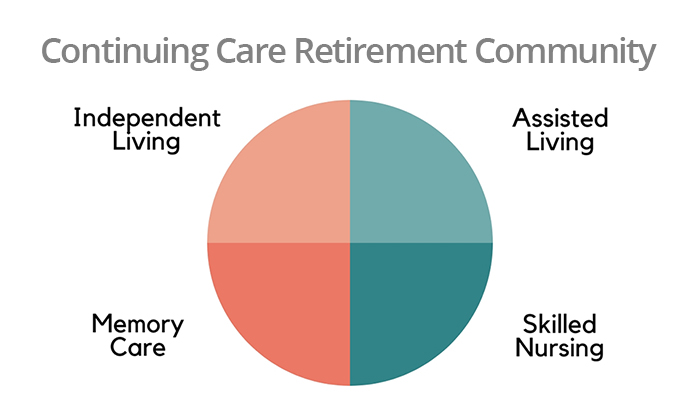
A CCRC, or continuing care retirement community, answers the desire to “move just once.” Rather than relocate several times over the course of aging, your loved one can stay on one campus. Even as care needs change. Typically, residents start by moving in to an independent living unit with no support services. When help is…

Each new year’s dawning seems like a nudge to check one’s personal compass. Are you headed in the direction you want to be going? Has life seemed just a frenzied dash through the to-do list? Or maybe your past year was dominated by feelings of frustration or futility. Perhaps you yearn for a sense of…

For many of us, the words “speech therapy” make us think of a classmate in grade school who had trouble because of stuttering. In fact, speech therapists help with many problems that crop up later in life. Consider stroke, Parkinson’s, dementia, and brain injury. All these disorders can affect a person’s ability to find and…
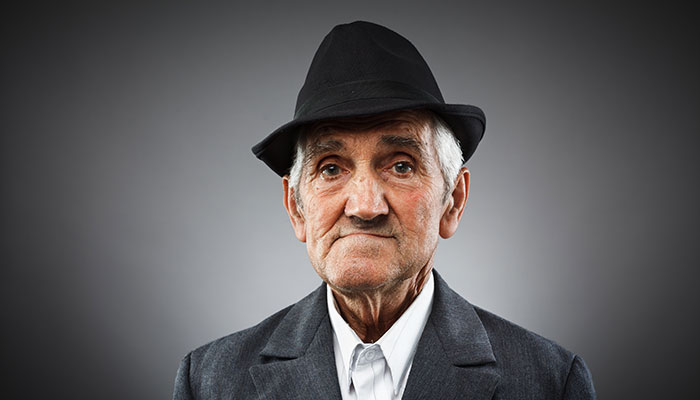
A holiday visit sometimes reveals surprising changes, such as little food in the cupboard, a loved one’s loss of appetite, or his or her unexpected weight loss. Talk with the doctor first. A weight loss of 5% over 6–12 months is considered worthy of medical attention. (For a 130-pound woman, that would be seven pounds….

Whether you are caring for a loved one with dementia or helping a relative with cancer, sometimes the sadness of it all feels overwhelming. Especially at the holidays. The sadness is natural, of course. But you don’t want to get paralyzed by it. Pivoting from the sadness As family caregivers, we need to learn how…

Today, there are many ways to stay in touch with the elders we love. That’s a good thing because research suggests that older adults who are socially engaged enjoy greater happiness and a sense of purpose. Those who are isolated and lonely are at a higher risk of depression, heart disease, obesity, and Alzheimer’s. But…

Caring for a seriously ill family member can lend a tinge of blue to the holidays. It may be sadness that cherished family rituals are no longer possible. Or you may be worried that this year will be the last for a sick or ailing loved one. Perhaps the thought of visiting relatives is simply…

Dietary habits make a big difference in quality of life for people with Parkinson’s. Eating-related symptoms often crop up. For example, difficulties with swallowing. Also, problems with constipation as a result of slow muscle response. And problematic food–drug interactions. On the plus side, some foods can reduce the free radicals common in Parkinson’s. Here are…

The benefits of gratitude are well understood. Studies show, for example, that approaching life from a grateful stance yields a stronger immune system, lower blood pressure, and better sleep. Plus, people who report more gratitude also report greater feelings of joy, aliveness, and optimism. Those who tend toward gratitude experience less loneliness and isolation and…
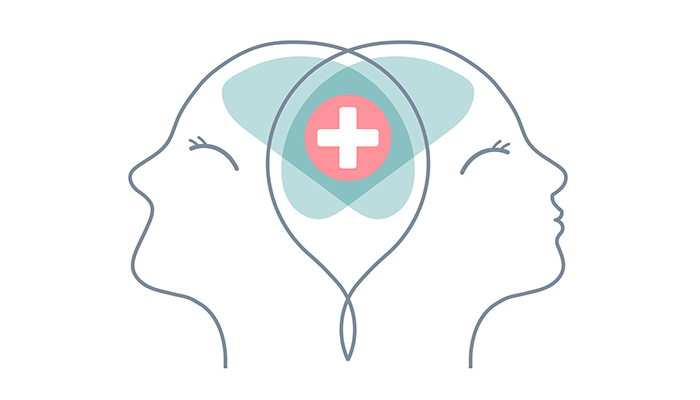
Are you concerned a loved one may have dementia? If so, be careful how you bring it up. It’s a scary subject! Before jumping to conclusions, gather some information. Ask family members and close friends what they have observed. Have others noticed changes? Think of the issue as one of “brain health.” Brains change as…
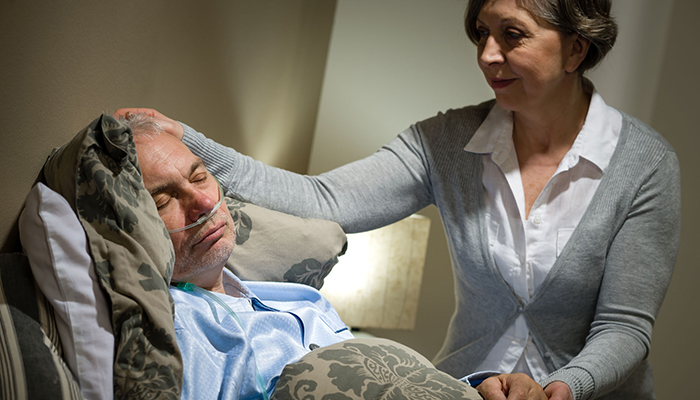
Chronic obstructive pulmonary disease (COPD) thickens airways, making it harder to breathe in and get enough oxygen. Damage to the lungs also makes it harder to exhale and get rid of waste gas (carbon dioxide). COPD is characterized by flare-ups that rather suddenly make breathing much more difficult. Often the patient needs to go to…
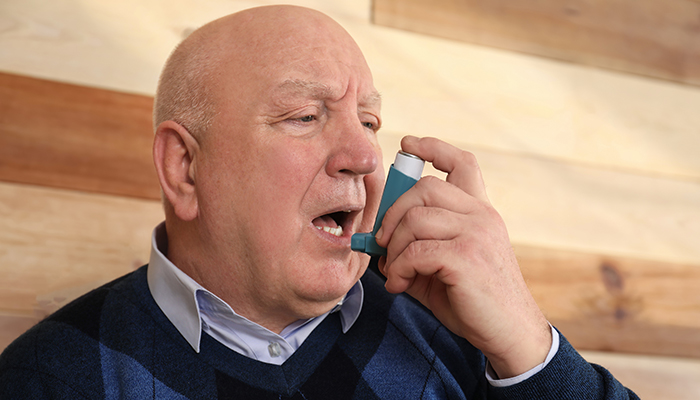
Chronic obstructive pulmonary disease (COPD) is a lung condition that gets steadily worse over time. It is often characterized by “flares,” or “exacerbations,” periods when breathing suddenly becomes more difficult. It can be very frightening and often results in a dash to the emergency room. It’s important to know the early signs of a flare…

A stroke usually results in damage to the brain. Some of the effects will be permanent. Others, temporary. Through exercises and practice, your relative may regain many if not all of his or her physical abilities. The emotional toll. What takes most patients and families by surprise are the emotional changes that can come with…

Trusting the body’s ability to heal itself and get stronger: This is the basis of physical therapy. Physical therapists use exercises and hands-on care to reduce physical pain and limitations. Their motto? “Physical therapy brings motion to life.” Their goal is to help people stay active. And mobile! In some situations, physical therapy can be…

While there is no denying the hardships of Alzheimer’s and other dementias, a growing number of families are exploring innovative strategies for including lightness and laughter on the journey. One option is to steal a page from the theater arts—specifically, improvisational theater. In conventional comedy improv, actors are presented with the unexpected and must come…
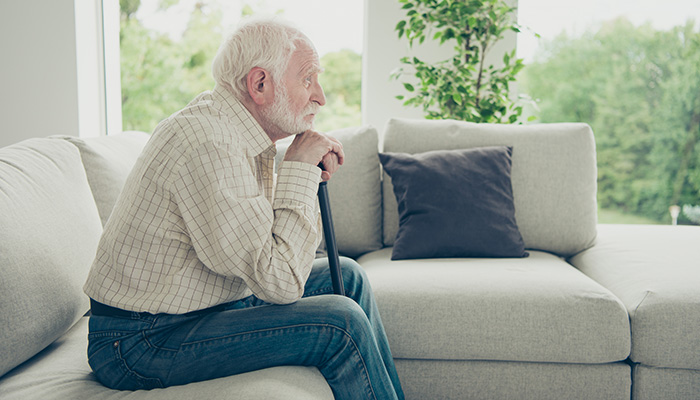
For many older adults, use of a walker carries great stigma. It’s a symbol of disability and often of isolation. In actual fact, a walker can be the key to staying actively engaged with favorite activities. The benefits of a walker It can bear up to 50% of a person’s weight. (A cane holds only…

Reentry If caring for your loved one was the main focus of your day, after his or her passing, expect a feeling of emptiness to dominate your awareness. In caregiving, you may have given up many personal activities, friendships, and possibly even a career, to accommodate your relative’s needs. This is especially true if he…

Are you happy with your relative’s Medicare plan? If not, fall is the annual “Open Enrollment” period. This is when you can change plans for the coming year. Open Enrollment for 2019 is October 15 to December 7. Even if your loved one likes the current plan, consider any new diagnoses or prescriptions since last…

A surprising number of conditions, from simple to serious, can cause an older adult to fall. If you observed the fall or arrived soon after, find out if your loved one had a warning or felt dizzy beforehand. Any chance he or she fainted? Was the fall from stumbling on an obstacle? Or more from…

“Senior moments” are a normal part of aging. They happen to everyone. We just don’t process things as quickly as we did in younger years. Some people develop significant memory and thinking problems. These people are eventually unable to live safely on their own. Typically, they have a stroke or develop Alzheimer’s or Parkinson’s disease….
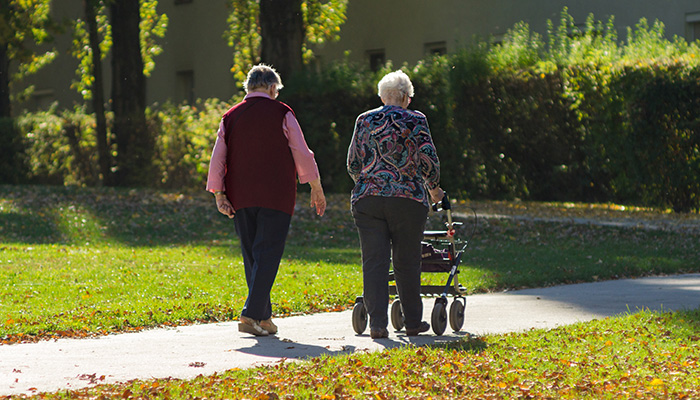
Many older adults who have fallen believe it is best to “stay safe” and avoid falling again by restricting their activities. Unfortunately, that’s the worst thing they can do! Inactivity is a path to reduced strength and mobility, which increases the risk of a fall and injury. One of the most important things you can…

Waves of emotions. When a person you’ve been caring for dies, you are likely to have many feelings. Sometimes conflicting feelings. You may find that emotions wash over you unexpectedly, arising suddenly like a wave, and then subside. This is a normal part of life after loss. Grief can be described as a combination of…

If the person you care for has Parkinson’s, you may be surprised to discover the many ways the disease hampers communication. Voice problems alone affect 60%-80% of people with this condition. Low volume and slurred speech may make it hard at times for you to grasp what your loved one is saying. He or she…

These days, most everyone is wondering if they are likely to develop Alzheimer’s disease. If someone in your immediate family has been diagnosed with the disease, you might feel at especially high risk. There is a test for an Alzheimer’s gene (APOE4). But it’s not 100% certain: Not everyone who has the APOE4 gene will…

Walking for exercise is recommended for every phase of life! Walking is the easiest physical activity to engage in, and it brings multiple benefits. The ability to get around readily is often the deciding factor in whether an older adult can stay living at home. Many older adults are hesitant to walk much. If you…

If a person you care for receives a serious diagnosis, it can feel like a gut punch—for everyone in the family. There is no way to sugarcoat such a reality. There are ways, however, to make the emotional journey less traumatic. Grief AND joy Even if your loved one has only months or weeks to…
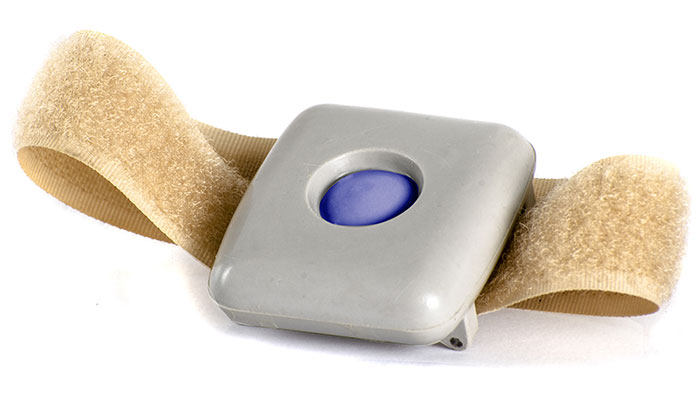
A personal emergency response system (PERS) can provide peace of mind if the person you care for lives alone. There are many factors to consider when shopping for a device. The need for a personal call button. Is your loved one at risk of a fall or heart attack? If so, you’ll want 24/7 emergency…

Mom taught you to always tell the truth. But in the context of caring for someone with memory loss (dementia), honesty may not always be the best policy. There may be times when the kindest strategy—the one that reduces your loved one’s anxiety or fear—is to omit the truth or bend it a little. This…

Perhaps your loved one is downsizing. Or maybe planning a move to assisted living or a nursing home. He or she may even have passed away… If you find yourself needing to pack up a relative’s belongings, start by sorting them into five categories: items to keep items to sell items to donate to charity…

If your loved one suddenly developed difficulty with speaking, he or she probably has aphasia, typically from a stroke or traumatic brain injury. Slow or garbled speech can be frustrating for everyone. Recovery is enhanced by following the advice of speech and occupational therapists. Your support is invaluable in terms of bolstering self-worth and confidence….

Do you find yourself in a repetitive cycle of reliving an exchange over and over? Reflecting on experiences gone badly is one way we learn. We think about what happened and look for insights that might promote a positive outcome in a similar situation next time. But sometimes reflection can be unhealthy. If you find…
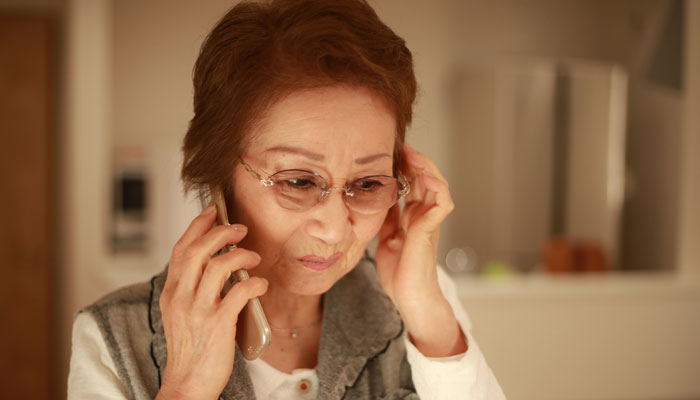
Financial abuse of the elderly is thriving. Advise your loved ones to be on the alert for these common scams: Government impostors Individuals call saying they represent Social Security, Medicare, the VA, or the IRS. They describe a problem with an account. Or taxes owed. Then they ask for name, date of birth, and Social…

Moving into a smaller living situation is a big decision. More emotionally challenging, however, are the many little decisions your loved one must make about what to keep and what to let go. Possessions, from knickknacks to garden tools, hold many dear memories. Letting go of them is like discarding the people or events they…

If the person you care for has a problem with memory loss (dementia), you may find that he or she gets agitated about things that don’t make sense. Your long-retired dad, for instance, may wake up in the mornings and insist, “I have to go to work!” It can be confusing for you. And frustrating!…

Nostalgia has historically gotten a bad rap, viewed as a precursor to feelings of sadness and longing. Emotional downers. Today we know that’s a faulty assumption. Research shows that nostalgia typically brightens mood. This is because nostalgia helps us in many ways: Focus on the positive in our past. People, events, places. We remember good…

Eating, dressing, getting in and out of a chair. In the course of daily life, we use many skills to accomplish even “simple” tasks. Walking or using a fork is surprisingly complex. Nerve signals and muscles have to coordinate in a very specific order. A healthy body is a marvel! We take these skills for…

One common outcome of a stroke or other brain injury is the sudden loss of ability to process language. This disability is called “aphasia” (ah-FAY-zya). Depending on which part of the brain has been damaged, the affected person may have trouble speaking or trouble understanding. Or may have difficulty with reading or writing. Needless to…

“Whether you think you can, or you think you can’t—you’re right.” —Henry Ford It turns out this truism applies to the ways we perceive the aging process itself. Research shows that older adults who view aging as a time of continued learning and development are physically more resilient. They seem to weather a setback and…

If your loved one has Parkinson’s disease, you have likely observed physical symptoms such as tremors, slowed movement, and poor balance. In addition to treatment with medication, evidence is mounting that exercise itself can reduce or delay progression of these symptoms. Even as little as 2.5 hours of physical activity a week. Benefits and types…

If you have a relative with Alzheimer’s or one of many other dementia conditions, it’s natural to wonder about your own risk. While there is no cure as yet, there is increasing evidence that lifestyle changes in middle age may do a lot to delay the onset of memory loss. The plaques and tangles of…

Every adult needs to complete an advance directive (and that means you, too!). It is the health care planning document that medical professionals follow if a patient becomes too ill to speak for him or herself. It gives your loved one the option to name someone as decision maker. And it is the place he…

Worry is useful when it calls us to action. But it’s a problem when it becomes an ongoing state of mind. It can become a habit, bringing tension and stress. If you’re a worrier, you may have mixed feelings. It may seem that worry keeps you on your toes, yet it makes you edgy and…

“Chronic pain” is pain that lasts for 12 weeks or more. The cause is usually nervous system misfiring, like a faulty car alarm system. Often there is no specific trigger, which makes treatment difficult. Chronic pain is common, affecting 50%–66% of adults age 50 and older. Opioid drugs are recommended for pain control in life-threatening…

Everyone with a memory loss condition deserves the opportunity to stay engaged in life for as long as possible. Early in the disease, your loved one will continue to do many things quite well. Your challenge is to balance respect for your relative’s independence with the need to ensure safety. All this while preserving a…

The makers of smartwatches are now designing products for older adults. And they just may have come up with an acceptable alternative to the standard “I’ve fallen and I can’t get up” pendant. Perhaps you’ve tried to get your loved one to wear a personal emergency response system (PERS) pendant—only to hear, “No. I don’t…

For those facing a serious—or even incurable—condition, the Internet can seem to be the last refuge of hope. But how can you distinguish a trustworthy website from that of a huckster? “Follow the money” is an important key for deciding if a website is truly unbiased. Start by asking yourself who, what, and why. Who:…
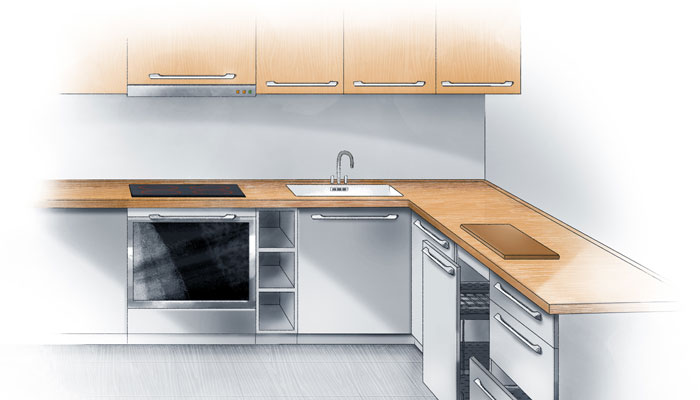
Aging creates so many “new normals.” Even routine activities such as cooking may become challenging for your loved one. Balance issues can make reaching, bending, or lifting a problem. Arthritis often makes it difficult to maneuver pans and tools, turn on a faucet, or twist off lids. Extreme fatigue may sap overall motivation. And problems…

Many of us were raised to believe that the only polite or kind answer is “yes.” But as Dr. Christine Carter, a UC Berkeley researcher, notes, “If you find yourself saying ‘yes’ when you mean ‘no,’ it’s a recipe for overwhelm and exhaustion.” Not to mention resentment, burnout, and ill health! Ironically, research shows that…

People with congestive heart failure (CHF) often tire easily, especially if they exert themselves. In CHF, the heart is swollen with fluids and cannot beat efficiently. The body’s cells then become hungry for oxygen. If your loved one has CHF, you witness this in his or her fatigue, shortness of breath, and frequent naps. Even…

What do you do when sweet Mom starts cursing angrily? When straitlaced Dad makes off-color remarks? In persons with dementia, these behaviors are not on purpose. They are caused by the brain changes of the disease. If you can’t find humor in the situation, draw on your patience. Believe it or not, your relative is doing…

Bathing brings many discomforts. Bathrooms can feel cold and drafty when a person is wet. And running water can be noisy. Nudity makes bathing very intimate, which can be distressing when a modest person needs help and may not recognize the helper. Plus, bathing is a complicated process with many steps in a specific order….

Many of us admire people who have the gift of remaining calm. Calm as a signature strength is the ability to respond to threats from a place of appropriate confidence. To remain “centered.” It’s not always easy to achieve. Our bodies react to the stresses of modern life—including family caregiving—with the same fight-or-flight hormones that…

No one can keep an eye on another person 24/7. Even in the most vigilant household, a loved one with dementia—Alzheimer’s or other memory disorder—may just find a way to slip out the door. After you have set up strategies to reduce the chance of wandering, it is also wise to pave the way for…

Here’s some good news to start the year! In 2019, we’ll see improvements in coverage across the major Medicare plans. About two-thirds of people on Medicare use “original Medicare.” Patients with original Medicare can go to any health care provider that accepts Medicare. Original Medicare pays for 80% of costs after a yearly deductible. The…
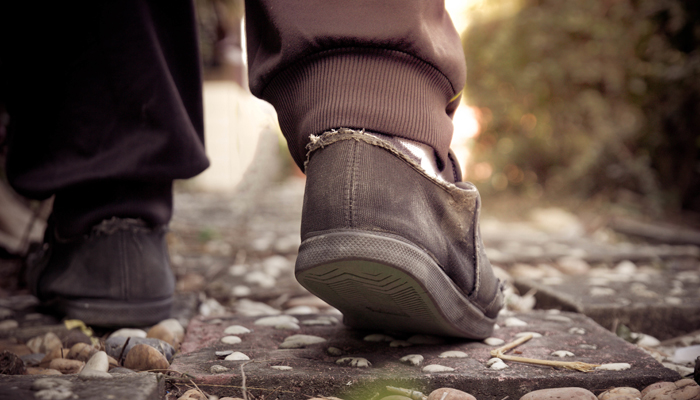
It is natural to fear that a loved one with dementia may wander. Indeed, 60% of people with Alzheimer’s do get restless and head out the door. As a family member, you can’t be watchful every minute. But you can take steps to reduce the chance of wandering. The many triggers for wandering include anxiety,…

When your schedule gets tight, is sleep one of the first things to go? According to the experts, that’s all too common. And it makes about as much sense as deciding to do without food, air, or water. Sleep is that essential. Most adults need 6 to 8 hours of sleep per night. Sleep promotes…

After the hubbub of the holidays and in the darkest nights at year’s end, nature seems to beckon us to reflect. Rather than make a resolution about exercise or diet, consider looking at your approach to family caregiving and personal qualities you might nurture to become more resilient in this role. Psychologist Rick Hanson, PhD,…

Burnout is more than stress. And it isn’t just undesirable. It’s a risky condition. The consequences of burnout include emotional depletion, often leading to depression; reduced resistance to common illnesses, such as colds and flu; increased likelihood of a chronic disease, such as heart disease or diabetes; lack of energy to do what is necessary for…

What to get for the “chronologically gifted?” The age-friendly ideas below address the special interests or concerns of persons in their later years. Providing an experience. Don’t add to household clutter—give an activity! This way, you give the fun of anticipation as well as countless hours of enjoyment afterwards, remembering. Ideally, arrange the gift as…

Does Mom say she feels too weak to exercise? Does Dad run out of breath just walking down the street? People dealing with COPD often believe that exercise will make things worse. Actually, in moderation, quite the opposite is true. Very real benefits. Even people with severe COPD can become more physical. Something as simple…

Sharing happy experiences, like sharing a good meal, warms and strengthens friendships and family bonds. There are other benefits to savoring positive experiences. Even in the privacy of your own thoughts, reflecting on pleasant memories is an easy and effective way to increase your overall happiness. Hard wired to focus on the negative Have you…

Alcohol is a sensitive subject. Consider asking your parent’s doctor or a respected friend to initially bring up the subject. Tell them the reasons for your concern: slurred speech, unexplained falls or bruises. Be specific in your examples. Your parent will have less face to save with a trusted friend or professional than with their…
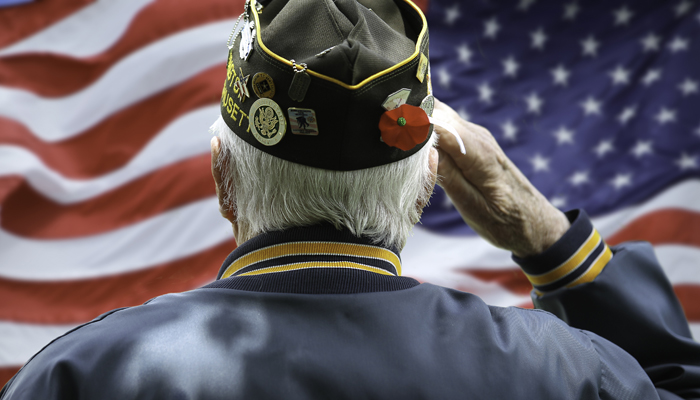
If the person you care for is a combat veteran, you may not have heard much about those experiences. You are not alone. In generations past, veterans made it a point to put the war behind them and “forget.” But things can take a dramatic turn in later life. As they face the challenges of…

In the tradition of “positive psychology,” we encourage family caregivers to know and use their signature strengths. These personality traits can become reliable tools. Courage, for example, has many faces beyond bravado and derring-do. See if you recognize yourself in these descriptions. Honesty and integrity are facets of courage. Are you a person who insists…

Did you know that 60% of people with flu symptoms leave the house during their illness? Furthermore, 70% of them go to the drugstore. A good reason to stay clear of the pharmacy during peak cold and flu season! Good preparation involves a lot more than a vaccine. Cold and flu germs are highly contagious….

Most hazards around the home are obvious once you are made aware of them. But they are easily overlooked in the course of day-to-day living. Don’t let your loved one get injured because of a simple oversight! Here’s a home safety audit you can do yourself. Lighting. In every room of the house, you want…
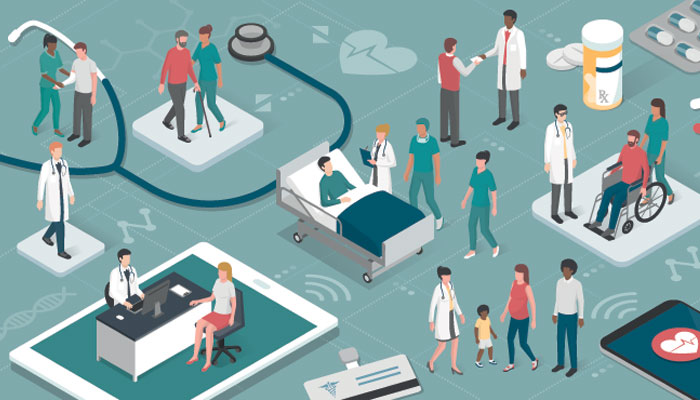
If your loved one is slated for joint surgery, don’t underestimate the impact. Expect that he or she will have reduced energy and greater needs. Limited mobility will create surprising challenges. Things you take for granted will need extra care and attention. Plus, the body simply needs time and energy to rebuild bone, muscle, and…

Each of us has strengths . . . and, well, areas that could use improvement. As a family caregiver, you may often feel inadequate. Or guilty. Or think that you aren’t doing enough. Such negative self-assessments are common. A more balanced assessment would acknowledge that you also have qualities that shine. Most of us believe…

Alcohol use is on the rise among older adults. And it’s not easy to spot. Many of the signs resemble common problems of aging. And who wants to think that when Mom stumbles, for instance, it might be because of drink?! There’s a lot of shame associated with drinking, so older adults—especially older women—often hide…

If remaining independent is a goal for your older relative, bringing some balance to his or her life is essential—balance exercise, that is. All it takes is short but consistent focus for Mom or Dad to significantly reduce the chance of a fall. In one study, two 15-minute sessions of balance exercises over a six-month…
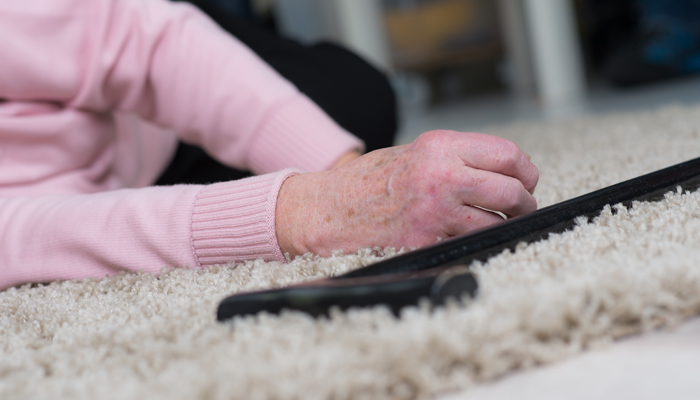
Has your mother fallen recently? She’s not alone! One out of four adults 65 and over experiences a fall each year. That makes falls the leading cause of injury for older adults. Falls are serious business. A few grim statistics: In the U.S. an older adult dies once every 20 minutes as a result of…
© 2002-2025, Caring Choices. Site created by Elder Pages Online, LLC.